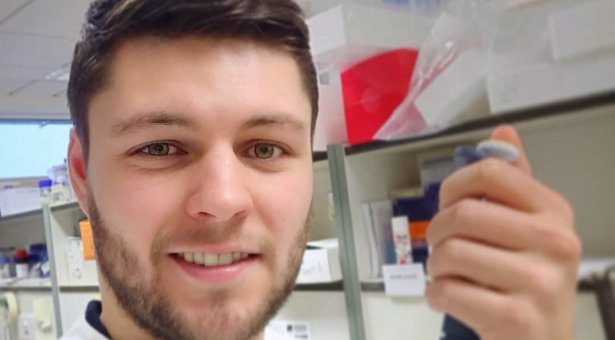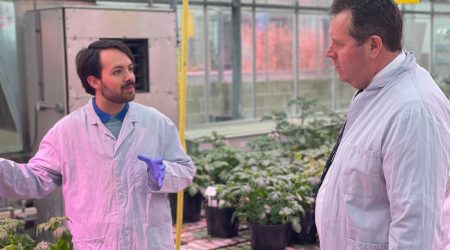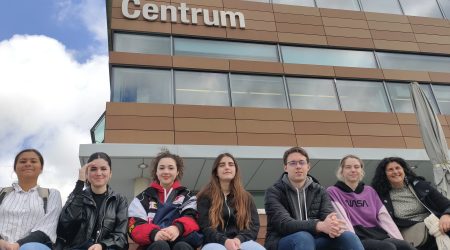A year in the life of a PhD student: #365DaysOfScience

If someone had asked me a few years ago if I would like to do a PhD, I would have said; “what on earth is it and what does it involve?” Yet here I am, a PhD student in the Molecular Microbiology department at the John Innes Centre.
Growing up, what a PhD was, or why you would put yourself through doing one was never really explained or suggested as a potential option.
Luckily for me, I found the right peers and mentors during my time at university and that experience naturally led me into pursuing a PhD but others may not be so lucky and so may miss out. That’s why I set out to make getting in to science more accessible.
If others can see my daily scientific escapades and what is involved with doing a laboratory-based PhD, then perhaps this can inform potentially interested PhD applicants while helping to support fellow PhD students and researchers across the globe.
My PhD project is researching bacterial infection in more detail to understand why things are able to infect their hosts and how we can potentially stop them.
To do this, I am focusing on a virulence system called the type III secretion system which acts like a tiny biological syringe. Bacteria can use this type III secretion system to inject “effector proteins” in to their hosts which allows the bacteria to colonise. I’m interested in how this system functions and regulates. Specifically, I’m trying to unravel what impact a key bacterial signalling molecule called cyclic-di-GMP has on the system and how this impacts bacterial virulence. I’m using Pseudomonas as a model organism to study this system to model human and plant-based infections.
I never do things by half and I’m always up for a challenge, so I decided to document my PhD journey every day for an entire year. It is my intention to help spread awareness of what the day to day life of a scientist looks like. From daily experiments to international conferences, I’m covering everything.
So, what actually is a PhD then? PhD stands for Doctor of Philosophy, it is the highest-level degree and it serves as your formal training for becoming a scientist or a researcher.
A doctoral degree is focused on researching a specific topic in order to expand human knowledge in the form of original discoveries and thought, which is then written up as a thesis. One important aspect to note is that doctor of “philosophy” in this context refers to the original usage of the word – the love of wisdom.
To expand the breadth of human knowledge, when it comes to science, usually equates to spending lots of time in the laboratory conducting experiments. These experiments, over the course of several years, help add missing pieces in the puzzle of scientific understanding.
Scientific experiments can range from simple 10-minute bench-top assays to quantify compounds or to measure activity, all the way through to intricately-planned crop field trials that can take months, or even years to complete.
The diversity of what you do in the lab is great and no two days are ever the same.
In science there are plenty of ups and downs. Some experiments work first time, some may require months of optimisation while other may not work at all. For the uninitiated, this can be tough to come to terms with at times and so I feel it’s important to show what you can go through.
Staying positive in the face of negative results or failed experiments is definitely the best approach. After all, if we knew we were always going to get positive results or for all our experiments to work, then it wouldn’t be research as we would already know the answer…
Another reason I wanted to post about my work every day for a year is to help increase accessibility for the general public regarding the science and as to what scientists actually do.
I’m a strong believer in science communication which aims to spread cutting-edge and important research with non-scientists. I also believe that this research needs to be communicated in an easy-to-digest and clear way that isn’t too technical or jargon-filled.
For me, I thought what better way than through small daily updates on Twitter. Those who are interested can follow me on my scientific journey gaining insight in to my work and what life as a scientist-in-training is really like.
If you are interested in following my daily PhD updates, visit my twitter @DannyJamesWard or search for #365DaysOfScience.
Danny is funded by the BBSRC Norwich Research Park Biosciences Doctoral Training Partnership, grant number BB/M011216/1.



